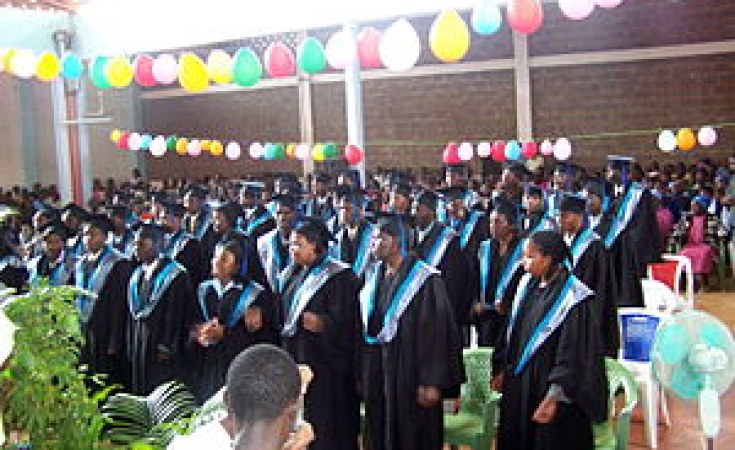FROM far away United States of America comes once again a cheering news: Nigerians are the most highly educated immigrants in most parts of the world's number one superpower. Our countrymen and women have pulled ahead of Asians and even whites.
A survey conducted by the US Bureau of Statistics in 2006 for instance, portrayed that 37 per cent of Nigerians living in the US have Bachellors degrees, while 17 per cent and 4 per cent have Master's and Doctorate degrees respectively. This is strikingly higher that the figure for the white population (19 per cent BA, 8 per cent MA and one per cent Doctorate).
As the perception of Nigeria as a country that values higher education begins to make the rounds around the globe, our seriously battered international image will surely receive a heartwarming facelift.
Before we go too far into celebratory mood, it is important to spend a few moments of reflection on this phenomenon. It is, indeed, significant that Nigeria was able to overtake the Asian population (especially the Indians and Pakistanis) whose educational advancements led to their exportation of manpower to other parts of the world starting from the 1970's.
Many of Nigeria's professionals in their 40's and 50's were beneficiaries of the large influx of Indian teachers who specialised mostly in the sciences and mathematics. India and Pakistan have also made giant strides in the areas of medicine, health sciences and information/communications technology and are notable suppliers of softwares and manpower to the global job market. That Nigerians are now head and shoulders ahead of them in the US is certainly a remarkable achievement.
This feat was chiefly attributed to the popularity of free education in Nigeria. This may be partly so. Most of these academically advanced Nigerians must belong to the 40 years and above category (and their children) who benefited from the free education policies of founding Nigerian leaders, especially Chief Obafemi Awolowo and his succeeding generation of leaders such as Alhaji Lateef Jakande.
Since, however, this free education policy applied in a restricted part of the country, the phenomenon of high educational attainment must go way beyond free education.
It is a fact borne out by long historical tradition that most Nigerians seeking sanctuary in the US and Europe have always gone "in search of the Golden Fleece" (higher education). It was not until the economic hardship of the 1980's and beyond that economic refugees joined them.
But in line with tradition, both those there for academic pursuits and economic opportunities invariably struggle to educate their family members through the university level. This is quite unlike the indigenous American population where "going to college" after high school is not yet automatic.
The mind boggles at the amount of money that Nigerians have poured into the American economy for over a century in search of education.
It is doubly perturbing that the phenomenon of brain drain skims off the top of the cream of the products of our educational system powered by our money going to offer their skills to foreign economies due to lack of opportunities within the country.
Nigeria and Nigerians spend billions of dollars annually on school expenses to train our young people abroad who most of the time simply stay back after graduation.
The high level of skilled Nigerian manpower in America and Europe shows that once we begin to apply the correct measures to move Nigeria into the club of performing economies we have the ready materials from all parts of the world whom we can call upon to operate the engine room. The time has come for us to begin to apply those correct measures. We want Nigerians trained in the best institutions in the world to come back to this country and actualise their potentials.
Besides we need to reorganise our educational system to once again begin to attract students from other parts of the world to come to Nigeria, study and even settle down to offer their services. If Nigerians can help build great societies into greater ones, foreigners can also help make Nigeria greater.
If we allow our citizens to continue getting trapped in foreign lands after their academic pursuits we will in the nearest future begin to have Nigerians who are Nigerians only in name. It is our loss and their gain. Let us limit the euphoria of this achievement and instead seek ways of channelling it to the advantage of our battered nation.


